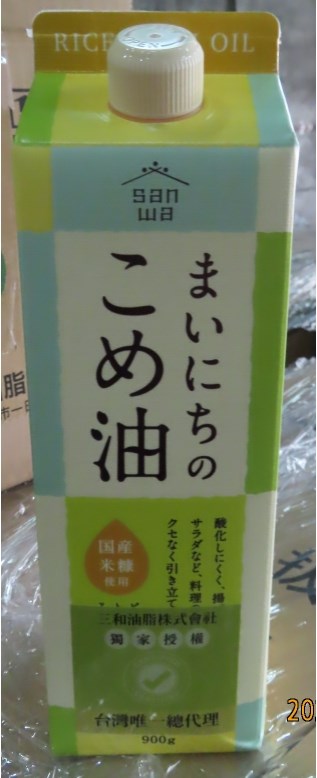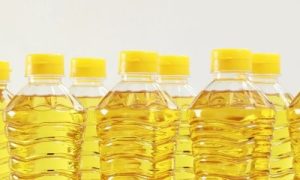Edible oils from UAE, Japan seized at border over excessive GEs

Taipei, July 9 (CNA) – The Taiwan Food and Drug Administration (TFDA) seized shipments of palm oil from the UAE and rice bran oil from Japan containing excessive glycidyl fatty acid esters (GEs), a suspected carcinogen. The palm oil had 2,634 μg/kg of GEs and the rice bran oil 1,688 μg/kg, surpassing the 1,000 μg/kg limit. The shipments will be returned or destroyed. Additionally, 10 other imported items, including U.S. cherries, failed safety inspections.
Taipei, July 9 (CNA) Shipments of edible vegetable oils imported from Japan and the United Arab Emirates have been seized at the border for containing excessive levels of glycidyl fatty acid esters (GEs), a suspected carcinogen, the Taiwan Food and Drug Administration (TFDA) said Tuesday.
Sample testing conducted in late May and June on two separate shipments of imported palm oil and rice bran oil detected excessive amounts of GEs, which are contaminants found in edible oils that form during the refining process and can turn into the compound glycidol when ingested by humans, according to the TFDA.
Glycidol is classified as “probably carcinogenic” by the United Nation’s International Agency for Research on Cancer.
The shipment of palm oil from the UAE was found to contain 2,634 micrograms (μg) per kilograms of GEs, while the rice bran oil from Japan had 1,688 μg/kg of the contaminant, the administration said.
Under the Sanitation Standard for Contaminants and Toxins in Food, the limit for GEs in vegetable oils and fats, fish oils and oils from other marine organisms for consumption or use as an ingredient in food is 1,000 μg/kg, TFDA Deputy Director-General Lin Chin-fu (林金富) explained.
The two items, weighing a combined total of 8,334.40 kg, will either be returned to the country of origin or destroyed, the TFDA said.
Meanwhile, the list of imported items that recently failed safety inspections issued by the TFDA on Tuesday showed 10 other imported items that did not meet Taiwan’s safety standards, including frozen mixed vegetables from Vietnam, barley leaf powder from China, and fresh cherries from the United States.
Two separate shipments of U.S. cherries weighing a combined total of 3,943 kg were found to contain excessive levels of pesticide residue, Lin said.
From Jan. 1 to July 1 this year, Taiwan inspected a total of 1,240 batches of the imported American fruit, and five failed to meet safety standards, he said, indicating that the random inspection rate for fresh cherries from the U.S. will be maintained at 20-50 percent until Sept. 30.
Source Link : https://focustaiwan.tw/society/202407090016















